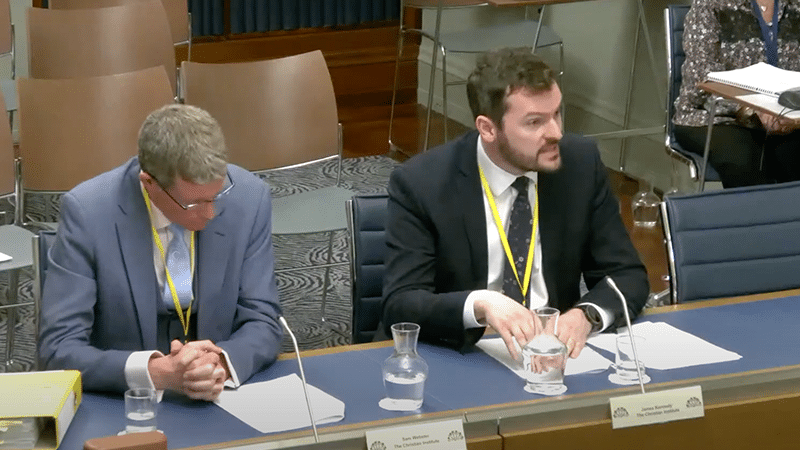Consolidating existing equality laws in Northern Ireland is fraught with difficulty and must be handled very carefully to avoid undermining religious liberty, The Christian Institute has warned.
The Institute’s In-house Solicitor Sam Webster and NI Policy Officer James Kennedy told the Committee for the Executive Office that “drawing together” the Province’s “patchwork of equality law” into a single piece of legislation could detrimentally affect the work of churches.
In December, the CI wrote to the Committee highlighting errors made during the passing of the Equality Act 2010 at Westminster, which meant it was more difficult for churches in Great Britain to understand their rights and freedoms.
‘Rich heritage’
Mr Kennedy reminded the Committee of the “rich heritage” of freedom of belief in Northern Ireland and urged its members to “treasure and guard” it.
He acknowledged that the consolidation of existing laws “does not, in itself, pose a risk to religious freedom”. But, he argued, it would not be a “straightforward task”.
He explained: “we would be comparing and compiling swathes of legislation, written across several decades, with complex jurisprudence to be considered, and trying to make it all fit together without losing anything”. Even minor changes, he said, could result in significant consequences for religious liberty.
‘Unnecessary and unworkable’
He cautioned the Committee against extending ‘third party harassment’ provisions in the field of employment, which he said would create “a legal interest in businesses to police what members of the public say”.
He also argued that “the call from the Equality Commission for discrimination protections for volunteers” was “unnecessary and unworkable” in the context of churches and other faith groups.
If the proposal to try and harmonise existing legislation was to be attempted, Mr Kennedy concluded, then the Committee must “aim for the right provisions” for Northern Ireland, “without risking protections that already exist”.
While supportive of reform, the Law Society of Northern Ireland recognises that “developing a Single Equality Act would be a mammoth task”. The Equality Commission for Northern Ireland has also conceded that it will be “very difficult to get Member buy-in, support and agreement on all the issues”.
Ashers Baking Co
During the proceedings, TUV MLA Timothy Gaston asked whether the Institute’s concerns were primarily with the “erosion of religious freedoms that currently exist” resulting in “a potential attack on the church?”
Mr Webster responded to clarify that the Institute was focussed on “the interface between some of the possible changes and religious freedom and how there could be unforeseen consequences”.I’m sure when the Fair Employment and Treatment Order was passed in 1998, no one ever envisaged the Ashers Baking Company Case ending up going to the Supreme Court.
He explained: “For example, I’m sure when the Fair Employment and Treatment Order was passed in 1998, nobody ever envisaged the Ashers Baking Company case ending up at the Supreme Court.”
Serious implications
He continued: “All we’re saying is, caution needs to be exercised because why should the citizen have to go all the way up to the UK Supreme Court in order to get the law clarified, in order to defend his or her rights to freedom of expression or religious freedom, and spend £300,000 to do that?
“Laws can be passed very easily, but legislators don’t necessarily always see the implications further down the track for other protected characteristics”.
In 2018, the UK Supreme Court vindicated Ashers Baking Company after a lower court ruled it had broken the law by declining to decorate a cake with a pro-gay marriage campaign slogan.
Owners of the bakery, the MacArthur family, were pursued through the courts by the taxpayer-funded Equality Commission for Northern Ireland when they turned down the order because it conflicted with their Christian belief that marriage is between a man and a woman.

